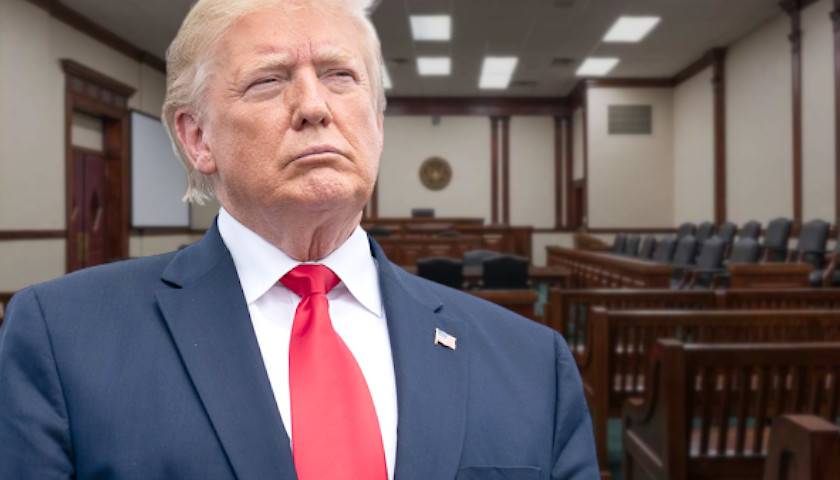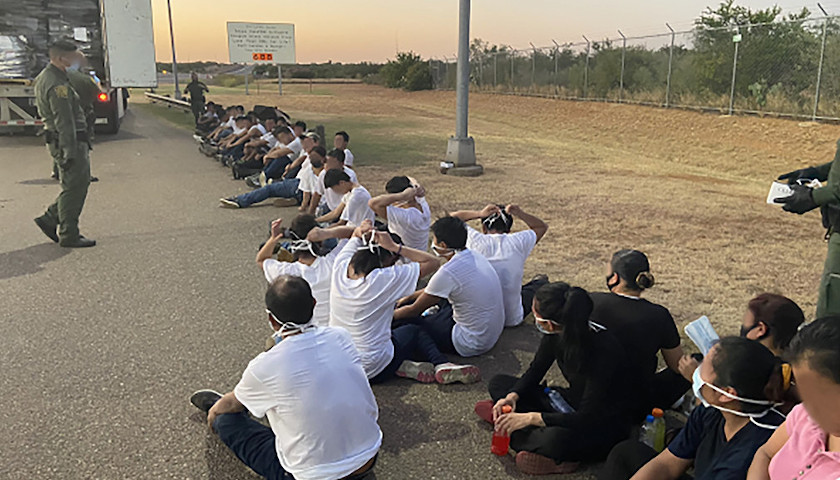by David Catron
The ongoing campaign by progressive activists to deny former President Trump a place on state ballots received yet another serious setback late Friday. After a weeklong bench trial, Denver District Court Judge Sarah Wallace issued a 102-page opinion in Anderson v. Griswold concluding that “Section Three of the Fourteenth Amendment does not apply to Trump.” She ordered Colorado’s Secretary of State Jena Griswold to place his name on Colorado’s presidential primary ballot. This is the fourth state in three weeks to reject efforts to keep Trump off their ballots.
On Oct. 30, a judge in New Hampshire declined to hear Castro v. Scanlon because the plaintiff lacked standing to sue and the complaint raised a “nonjusticiable political question.” On Nov. 8, the Minnesota Supreme Court dismissed Growe v. Simon, as follows: “Because there is no error to correct here as to the presidential nomination primary, and petitioners’ other claims regarding the general election are not ripe, the petition must be dismissed.” On Nov. 14, a Michigan judge rejected LaBrant v. Benson on the grounds that the courts have no authority to prevent Trump’s name from appearing on the state’s primary ballot.
In the Michigan case, Judge James Redford also made a point concerning the difficulty of answering the following questions: “What is an insurrection or a rebellion? What is it to engage in it or to give aid and comfort to the enemies of the Constitution?” He then suggests that the only body constitutionally equipped to answer these questions is the U.S. Congress. Unfortunately, Judge Wallace wasn’t as circumspect as Judge Redford. Having already concluded there were no legal grounds for keeping Trump off of Colorado’s primary ballot, she arbitrarily declared that he had deliberately fomented a violent rebellion:
The Court concludes, based on its findings of fact and the applicable law detailed above, that Trump incited an insurrection on January 6, 2021 and therefore “engaged” in insurrection within the meaning of Section Three of the Fourteenth Amendment. First, the Court concludes that Trump acted with the specific intent to disrupt the Electoral College certification of President Biden’s electoral victory through unlawful means; specifically, by using unlawful force and violence. Next, the Court concludes that the language Trump employed was likely to produce such lawlessness.
The language to which she refers comes from the Jan. 6 speech Trump delivered on the Ellipse, from which she cherry picked words for purposes of portraying it as a call for violence. She claims, for example, that his use of “fight” was not meant symbolically as politicians normally use it. She writes that, “when spoken by Trump,” such words were “literal calls to violence.” She based this nonsense on the testimony of Peter Simi, a sociologist who studies “extremist groups.” Simi testified that far-right groups often use implicit rather than overt calls for violence and that was how Trump secretly transmitted his Jan. 6 call to arms.
By contrast, Judge Wallace makes no mention of the following overt exhortation delivered by Trump during the selfsame speech: “I know that everyone here will soon be marching over to the Capitol building to peacefully and patriotically make your voices heard.” Indeed, included in the “evidence” she allowed the petitioners to present was an edited video of Trump’s speech from which that entreaty was conspicuously absent. Even worse, Wallace found that his speech was not protected by the First Amendment. As legal scholar Alan Dershowitz wrote in Newsweek shortly after Trump delivered the speech, Judge Wallace is clearly wrong:
Nothing the president said constituted unprotected “incitement,” as narrowly defined by the Supreme Court over nearly a century of decisions … In the leading case of Brandenburg v. Ohio, a unanimous Supreme Court ruled that even the advocacy of the use of force is constitutionally protected, unless it is specifically “directed to inciting or producing imminent lawless action.” In subsequent decisions the courts have narrowly defined “incitement” to exclude the kind of speech delivered by President Trump. It is beyond dispute, therefore, that his speech — disturbing as it may have been — is within the core protection of political speech.
Ironically, considering that Judge Wallace declined to deny Trump a place on Colorado’s primary ballot, a spokesman for the petitioners was oddly exalted in defeat. The corporate media has misrepresented them as “concerned Colorado voters,” but the driving force behind Anderson v. Griswold was Citizens for Responsibility and Ethics in Washington (CREW), an activist group linked to David Brock and reportedly funded by George Soros. CREW’s Noah Bookbinder said, “The court’s decision affirms what our clients alleged in this lawsuit: that Donald Trump engaged in insurrection based on his role in January 6th.”
This case will inevitably be appealed to the Colorado Supreme Court, and it is not obvious that the Centennial State’s highest tribunal will adopt the measured view of Trump disqualification taken by its Minnesota counterpart. The only guarantee is that this political weapon will remain in the arsenal that provides ammunition to activists who want to bring down the Bad Orange Man — until the U.S. Supreme Court disarms them. Sadly, Chief Justice John Roberts is no William Rehnquist. Consequently, we are likely to find ourselves enduring what Hamlet lamented as “the law’s delay” while fondling bodkins and biting our nails.
– – –
David Catron is a recovering health care consultant and frequent contributor to The American Spectator. You can follow him on X / Twitter at @Catronicus.




